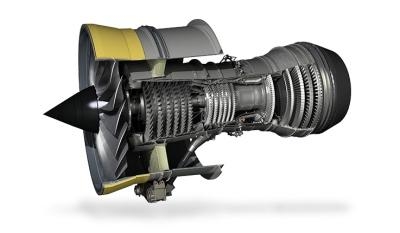Sun, Dec 20, 2020
AD 2020-24-08 Requires Replacement Of HPT Blades With Parts Eligible For Installation
The FAA is adopting a new airworthiness directive (AD) for certain Rolls-Royce Deutschland Ltd & Co KG (Type Certificate Previously Held by Rolls-Royce plc) (RRD) RB211 Trent 768-60, 772-60, 772B-60 and 772C-60 model turbofan engines.

This AD requires replacement of high-pressure turbine (HPT) blades with parts eligible for installation before exceeding specified flight cycles since new. This AD was prompted by several reports from the manufacturer that HPT blades on RB211 Trent 700 model turbofan engines have been subject to high levels of corrosion
fatigue, leading to blade cracking and eventual release, resulting in an aborted take-off and in-flight shut-downs. The FAA is issuing this AD to address the unsafe condition on these products. This AD is effective January 4, 2021.
Supplementary Information: The European Aviation Safety Agency (EASA), which is the Technical Agent for the Member States of the European Community, has issued EASA AD No. 2018-0291, dated December 21, 2018 (referred to after this as “the MCAI”), to address the unsafe condition for the specified products. The MCAI states:
- HP turbine blades on a number of Trent 700 engines have been subject to high levels of corrosion fatigue, leading to blade cracking and eventual release. This has caused a number of aborted take-off and in-flight shut-down events. Sampling has identified that corrosion fatigue affects blades at varying rates, likely dependent on environmental, operational and individual blade conditions.
- This condition, if not corrected, could lead to blade failure and subsequent increased risk of high energy debris release, possibly resulting in damage to, and reduced control of, the aeroplane.
- To address this potential unsafe condition, RR issued the NMSB to provide instructions for removal from service of certain engines where a higher level of corrosion exposure is expected for the affected blades.
- For the reason described above, this [EASA] AD requires removal from service of certain engines, to be corrected in shop.
You may obtain further information by examining the MCAI in the AD docket at https://www.regulations.gov by searching for and locating Docket No. FAA-2020-1032.
More News
Aviation Governance Secured...At Least For a While The National Business Aviation Association similarly applauded the passage of the FAA's recent reauthorization, contentedly recou>[...]
Emphasis On Growing The Future of Aviation Through Concentration on 'AFFORDABLE FLYERS' It's been a number of years since the Latest Edition of Jim Campbell's HUGE SportPlane Resou>[...]
Amazilia Aerospace GmbH, Develops Digital Flight Control, Flight Guidance And Vehicle Management Systems Textron eAviation has acquired substantially all the assets of Amazilia Aer>[...]
Honeywell's Primus Brings New Tools and Niceties for Hawker Operators Hawker 4000 business jet operators have a new installation on the table, now that the FAA has granted an STC f>[...]
Company Celebrates Niche-but-Important Advancement in Industry Standards Echodyne has announced full integration of its proprietary 'EchoFlight' radar into the e American Aerospace>[...]
 Bolen Gives Congress a Rare Thumbs-Up
Bolen Gives Congress a Rare Thumbs-Up The SportPlane Resource Guide RETURNS!!!!
The SportPlane Resource Guide RETURNS!!!! Buying Sprees Continue: Textron eAviation Takes On Amazilia Aerospace
Buying Sprees Continue: Textron eAviation Takes On Amazilia Aerospace Hawker 4000 Bizjets Gain Nav System, Data Link STC
Hawker 4000 Bizjets Gain Nav System, Data Link STC Echodyne Gets BVLOS Waiver for AiRanger Aircraft
Echodyne Gets BVLOS Waiver for AiRanger Aircraft



